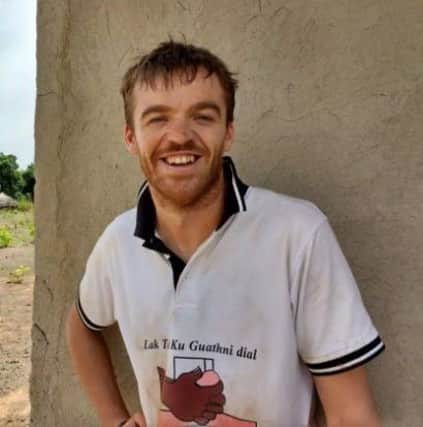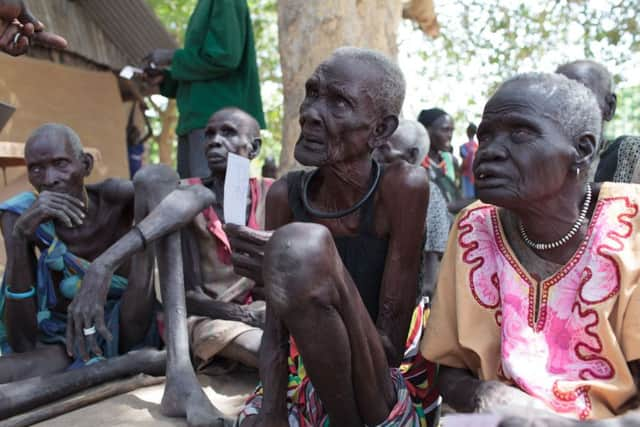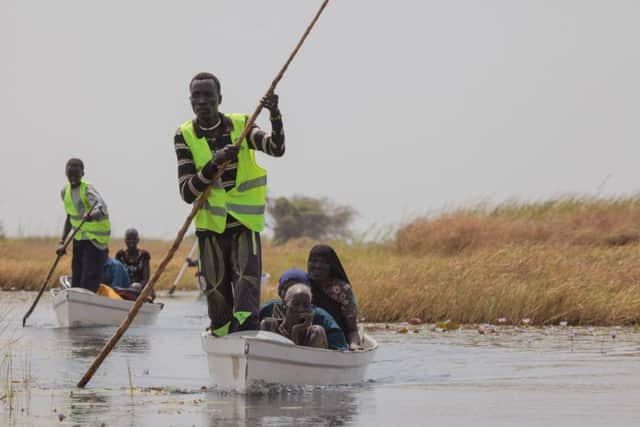Scottish aid worker reveals growing need for help in East Africa as crisis deepens


Angus McBride (28), is a water and sanitation engineer for Oxfam, one of the 13 members of the Disasters Emergency Committee (DEC). He is supporting refugees from South Sudan and has described the desperation of those fleeing in search of food and safety, and the urgent need to ramp up the emergency response.
Angus was based in South Sudan between 2014 and 2016 and is now based in Gambella in Ethiopia where more than a thousand people are crossing the border from South Sudan each week in search of safety and food.
Advertisement
Hide AdAdvertisement
Hide AdAngus said: “We are working to prevent outbreaks of water borne disease but with the rainy season coming soon that risk increases.


“The declaration of famine in parts of South Sudan is a major moment and highlights the depth of this crisis. Yet the truth is that this situation has been building for some time.
“During my time in South Sudan I was surrounded by people who were hungry. We managed to keep famine at bay in the areas where we were working, but people are still facing severe hunger and we know many other people are not getting any help and have no food at all.”
He continued: “People come from miles away to reach food distribution centres – sometimes walking for five days.
Advertisement
Hide AdAdvertisement
Hide Ad“Delivering support is difficult and it is made more complicated by the fighting. However, if we are going to stop the spread of famine, now is the time to act – and fast. The rainy season is due to start in April, and we know that will make it even harder to deliver the aid that is so badly needed.”


Angus is now supporting Oxfam’s emergency response in Ethiopia where he is helping to set up the newest refugee camp for those fleeing South Sudan. Designed for 60,000refugees, it is currently around half-full.
Angus said: “More and more refugees from South Sudan are arriving all the time. There’s a constant flow of people crossing the border into Ethiopia, with others heading into Uganda, Kenya and the Democratic Republic of the Congo (DRC).
“People are being forced to come here because of a combination of the fighting and the lack of food. You can see how desperate they are when they arrive – they are not in a good state and they clearly haven’t had enough food to eat.
Advertisement
Hide AdAdvertisement
Hide Ad“Everybody is living in small shelters made from poles and plastic sheets and the water is being trucked to the camp until longer-term facilities can be put in place.


“We are working to prevent outbreaks of water borne disease but with the rainy season coming soon that risk increases so we are trying to get as much in place as we possible to prevent that.”
He added: “Ultimately, these people don’t want to leave their homes and stay in Ethiopia – and they want to return as soon as possible but, right now, nobody has any idea when the fighting will end.”
To make a donation to the DEC East Africa Crisis Appeal visit www.dec.org.uk, call the 24-hour hotline on 0370 60 60 610, donate over the counter at any high street bank or post office, or send a cheque. You can also donate £5 by texting the word SUPPORT to70000.
Advertisement
Hide AdAdvertisement
Hide AdStay up to date with developments in East Africa, the emergency response and the fundraising efforts with the DEC on twitter:www.twitter.com/decappeal, on Facebook viawww.facebook.com/DisastersEmergencyCommitteeor by searching #fightingfamine